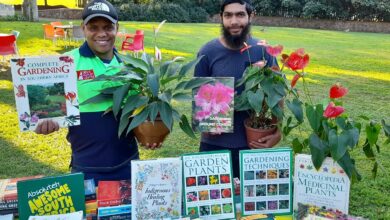Are you getting enough beauty sleep?
Struggling to fall asleep? Here are some useful tips to help you nod off.

Research shows that nearly half of adults report regular sleep difficulties and that sleep deprivation is now considered to be a global pandemic with its negative impact seriously underestimated. “Good, restorative sleep is essential for physical and mental wellbeing and supports the immune, nervous, skeletal and muscular systems which all impact on mood, memory and cognitive function,” says health and nutrition expert Vanessa Ascencao.
Ascencao recommends a daily sleep schedule, practising a pre-bed routine, disconnecting from screens two hours before bed, removing stimulants such as caffeine, nicotine and alcohol, exercising regularly, following a nutritious diet and managing stress.
In addition, she recommends natural remedies that may have beneficial sleep-inducing effects, support sleep quality and induce restorative sleep even at low doses.
Cut down on caffeine
Be aware of the amount you’re drinking; you might need to adjust your levels if you’re struggling to fall asleep at night.
Sip soothing camomile tea in the evenings before bed.
Switch off your device
We’ve been told this time and time again, but so many of us really struggle to put down our phones, iPads and laptops. You must avoid them for an hour or two before bed to improve your sleep. Break the habit and spend time reading in bed, cuddling your pets or talking to your spouse.
Exercise regularly
There’s no question that those who exercise regularly tend to sleep better, but don’t get into the habit of exercising too late as the adrenaline and endorphins will make it harder to doze off. You need at least two hours after exercising before bed.
Get into a routine
Regulate your sleep patterns by going to bed and waking at more or less the same time every day. If you have a late-night, try to get up at your usual time the next morning as this will help your internal clock stay in sync.
Eat early and limit alcohol
It’s hard for our bodies to digest meals, especially at night so move dinnertime earlier (easier in winter) and try not to eat for two hours before you go to bed. Sugary fatty foods add to digestion struggles so eating a light supper is beneficial for sleep too. Limiting alcohol also promotes better sleep – you’ll often find you don’t sleep well if you’ve had more to drink than usual.
Create a peaceful environment
Light candles, bath in essential oils, play soothing music – relaxation can really prepare you for a good night’s sleep. Always remove your makeup!
Get loved up
Being intimate with your partner can actually make it easier to fall asleep. This is mostly because the hormones that are released boost oxytocin (a hormone that makes you feel connected to your partner) and lower cortisol (a stress-related hormone), leaving you happily drowsy and ready for some good shut-eye.
* Source: Some information supplied by coyne-healthcare.com




